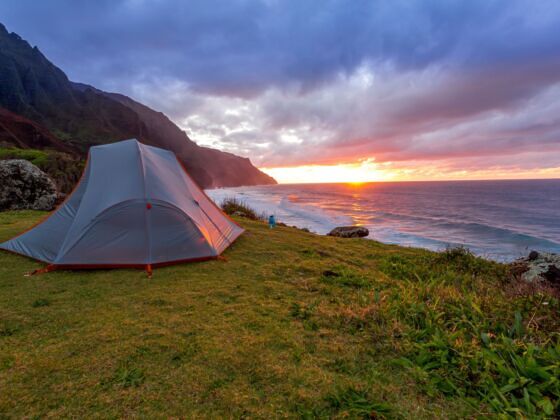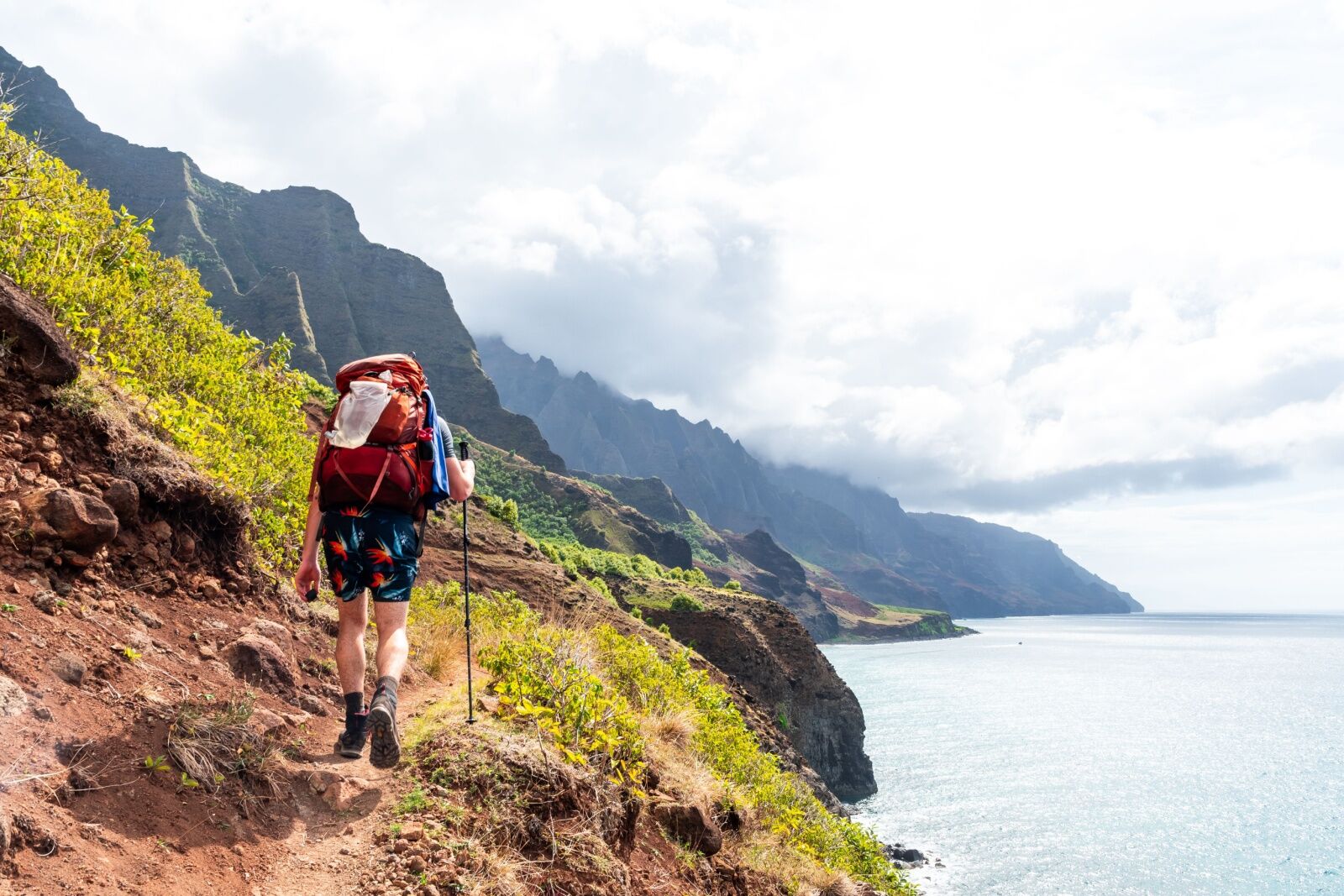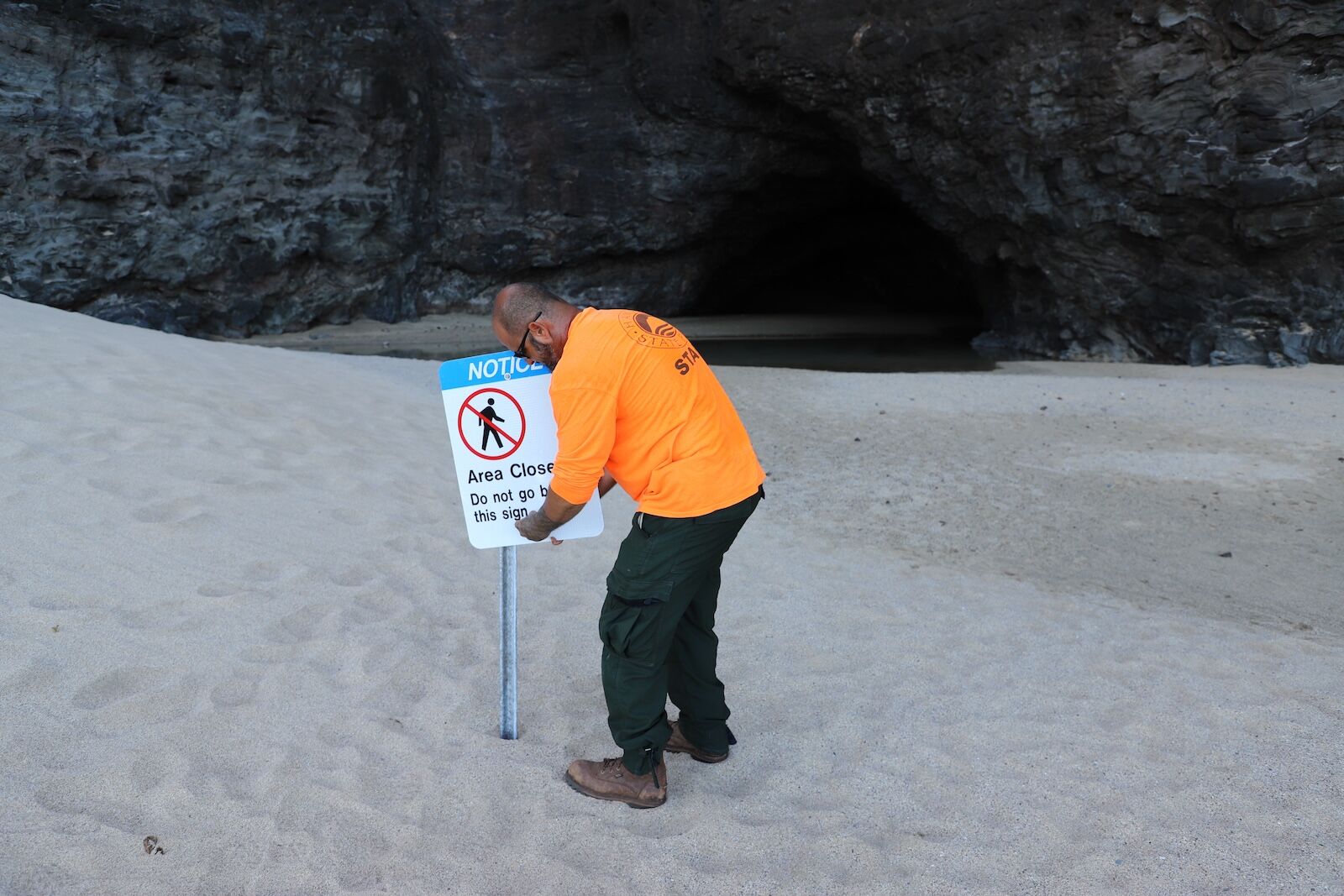Another day, another gorgeous outdoor destinations impacted by too many people and not enough responsibility.
Hawaiʻi’s Nāpali Coast on the island of Kauaʻi is one of the most well-known landscapes in the entire state. But Hawaiʻi hikers hoping to explore the 22-mile section of the Nāpali Coast’s Kalalau Trail on foot are out of luck for now, as the entire trail is closed indefinitely due to safety concerns. This month, more than 50 hikers fell ill after backpacking or using the restroom and sink facilities at a campground near Kalalau Beach. The Kalalau Trail norovirus closure was expected to last roughly two weeks, but has been extended indefinitely as more and more cases of the highly transmittable norovirus are being confirmed among hikers and backpackers.


